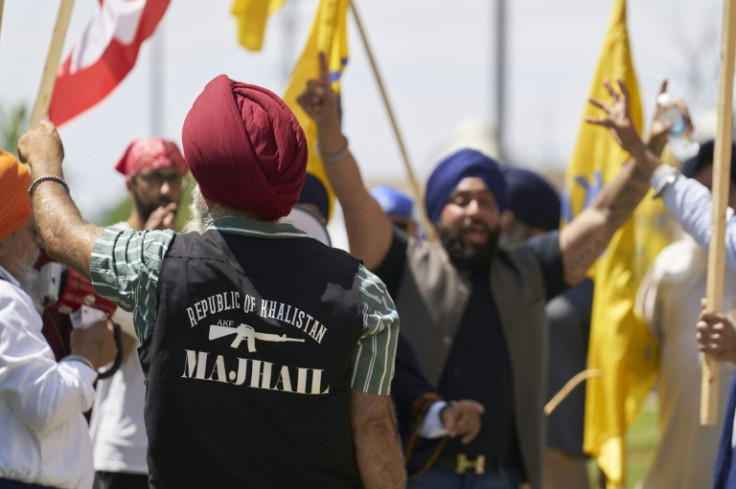US Thwarts Assassination Of Sikh Separatist On American Soil, Issues Warning To India

KEY POINTS
- The U.S. foiled an assassination attempt allegedly targeting Gurpatwant Singh Pannun
- The White House said Indian officials expressed "surprise and concern" when informed about the matter
- The Indian side said they are taking the inputs from the U.S. side seriously
Authorities in the U.S. foiled a plot to kill a Sikh separatist on American soil, prompting Washington to issue a warning to India over concerns about the government's involvement.
The White House said Wednesday the U.S. is treating the plot with utmost seriousness while the Indian side said they are examining U.S. inputs related to the allegations.
Gurpatwant Singh Pannun, an Indian-born lawyer who was previously declared a terrorist by the Indian government and faces criminal charges in India, including sedition, was allegedly the target of the assassination plot, Financial Times reported Wednesday, citing unnamed sources.
Pannun declined to say whether he received warnings from the U.S. authorities about his life being under threat. He would "let the U.S. government respond to the issue of threats to my life on American soil from the Indian operatives," as per the outlet.
Following the Wednesday report, the White House said Indian officials expressed "surprise and concern" when they were informed about the matter.
"We are treating this issue with utmost seriousness, and it has been raised by the U.S. government with the Indian government, including at the senior-most levels," White House spokesperson Adrienne Watson said Wednesday.
"They stated that activity of this nature was not their policy ... We understand the Indian government is further investigating this issue and will have more to say about it in the coming days. We have conveyed our expectation that anyone deemed responsible should be held accountable," Watson added.
Indian officials also said they received "some inputs" from the U.S. and were examining them.
"During the course of recent discussions on India-U.S. security cooperation, the U.S. side shared some inputs pertaining to nexus between organized criminals, gun runners, terrorists and others. The inputs are a cause of concern for both countries and they decided to take necessary follow-up action," Ministry of External Affairs (MEA) spokesperson Arindam Bagchi said Wednesday.
"On its part, India takes such inputs seriously since it impinges on our own national security interests as well. Issues in the context of U.S. inputs are already being examined by relevant departments," he added.
Details about the alleged assassination plot surfaced months after the diplomatic sparring between India and Canada, which was triggered by the explosive claims made by Canadian Prime Minister Justin Trudeau about India having a hand in the killing of Khalistani leader Hardeep Singh Nijjar on Canadian soil.
Since Nijjar was fatally shot outside a Sikh temple in British Columbia, Canada in June, Pannun has expressed intent to have Nijjar's killing avenged.
Pannun, who fled to the U.S. in 2007, is now a dual citizen of the U.S. and Canada. Founder of the pro-Khalistani group Sikhs for Justice (SFJ), Pannun has been building a network of pro-Khalistan supporters for years to advocate for the Khalistani movement, which demands a separate homeland for Sikhs in the Indian state of Punjab.
The Khalistani movement is illegal in India but thrives in the U.S., Canada and the U.K. with free speech laws protecting its supporters as they continue to make anti-India statements and openly advocate for secession from India.
The U.S.-based group SFJ was banned by India in 2019, and Pannun was designated a terrorist in 2020.
Prior to Nijjar's killing, India repeatedly asked Ottawa to take action against the breeding of the Khalistani movement in Canada. However, Trudeau's responses defended the Khalistani group and their freedom of speech and expression.
"In my view, it is unlikely that Canada or its government will take any action on the Indian concerns via-a-vis pro-Khalistani elements including Pannun. This is because while India views this issue from terror and separatism lens, Canadian establishment perceives this as a freedom of speech and expression issue. Plus, Ottawa also prioritizes domestic political concerns over Indian sensitivities," Sameer Patil, author and expert on Indian defense and security policies and counter-terrorism, previously told International Business Times.
© Copyright IBTimes 2024. All rights reserved.






















